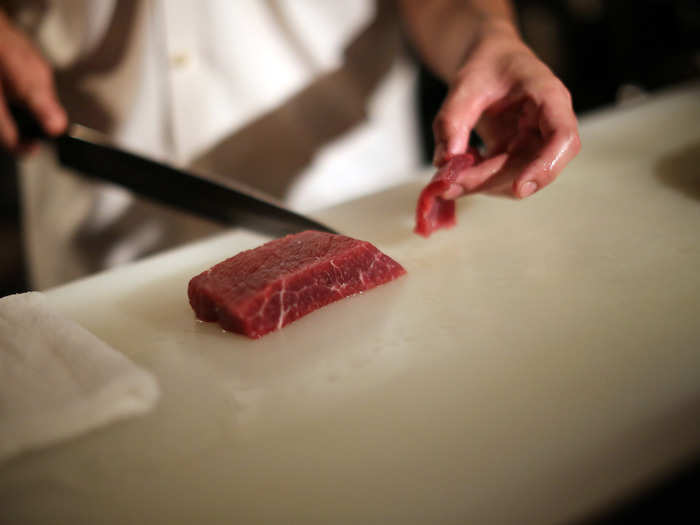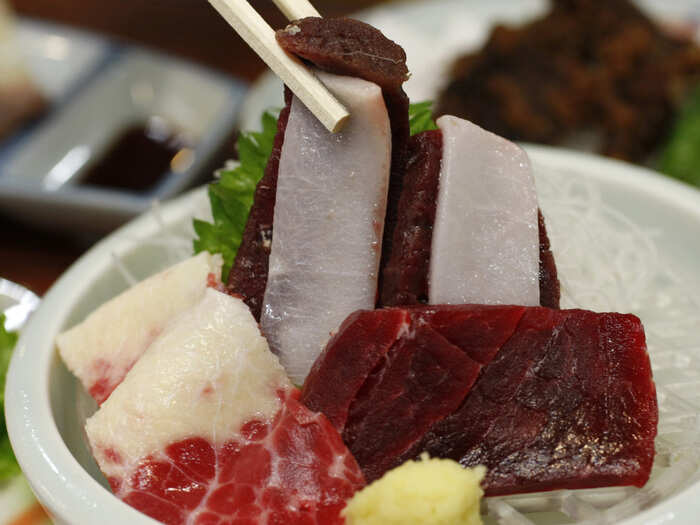- Home
- Science
- Environment
- Here's why Japan just killed 200 pregnant whales with a 'research' ship
Here's why Japan just killed 200 pregnant whales with a 'research' ship
On December 1, 2015, a whaling fleet subsidized by the Japanese government left on an expedition that ended 115 days later, on March 24, 2016.

The fleet's goal was to kill 333 Minke whales...
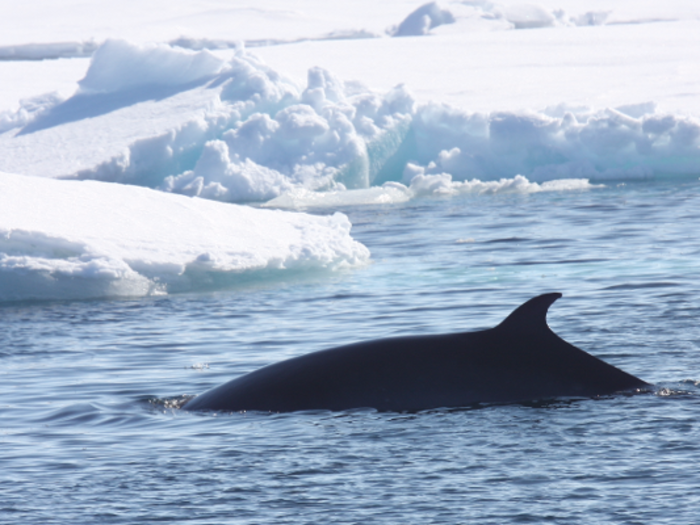
...In these waters off the Antarctic coast.
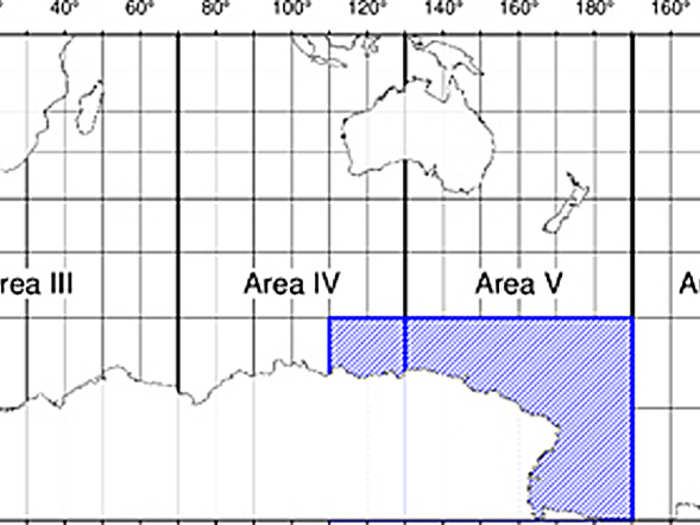
And they did. Sailors killed 103 males and 230 females — more than 200 of which were pregnant, according to Reuters.
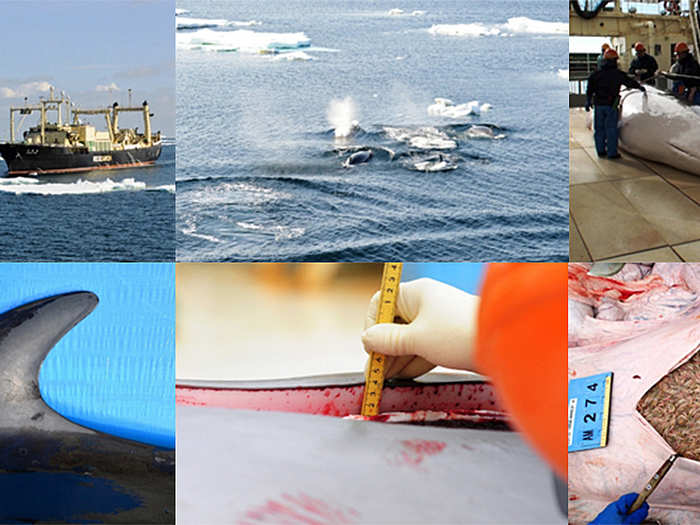
Source: Reuters
Minke whales are gentle giants that feed on tiny plankton. The animals can grow to 35 feet long and weigh 10 tons, or about the size of a bus.
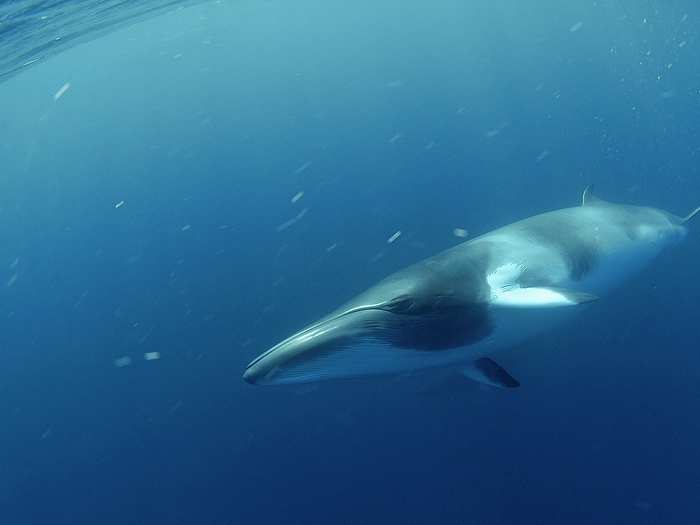
Source: NOAA
Japan defends its whaling practices today in the name of scientific research.
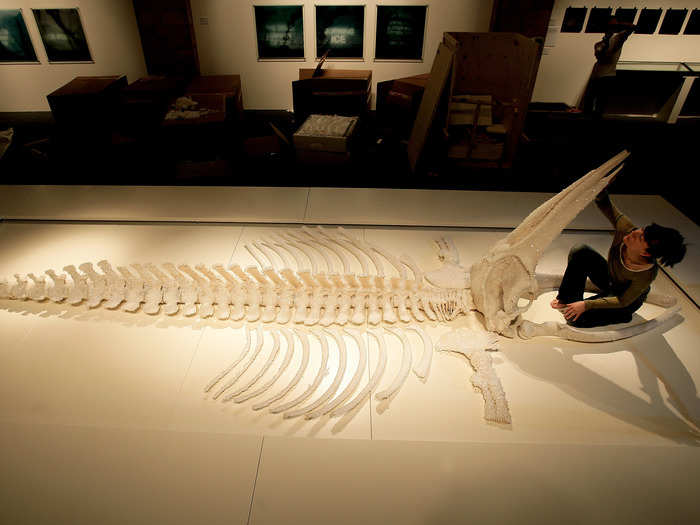
But most of the world does not buy this rationale: Almost all of the whales become food.
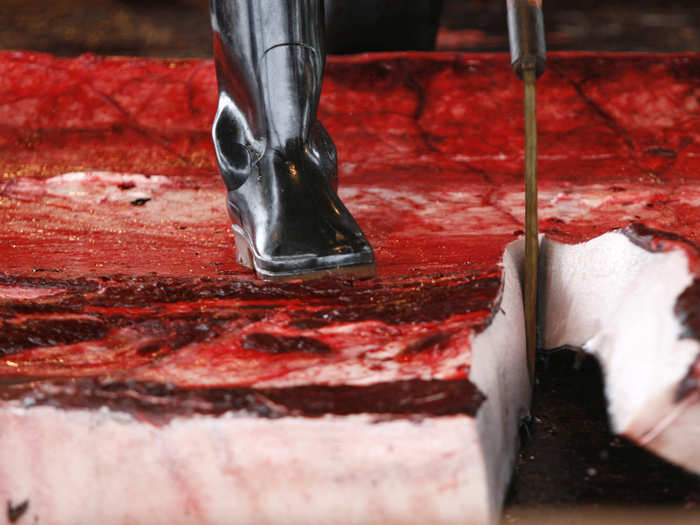
Source: The Guardian
Activists believe whale hunting is "cruel," "inhumane," and unnecessary. Whales are sentient beings, they say, who are impossible to kill in a humane way.

More and more scientific evidence has their backs: Whales have complex brains, language, dialect, and culture. Lawyers are even fighting legal battles to grant whales "personhood."
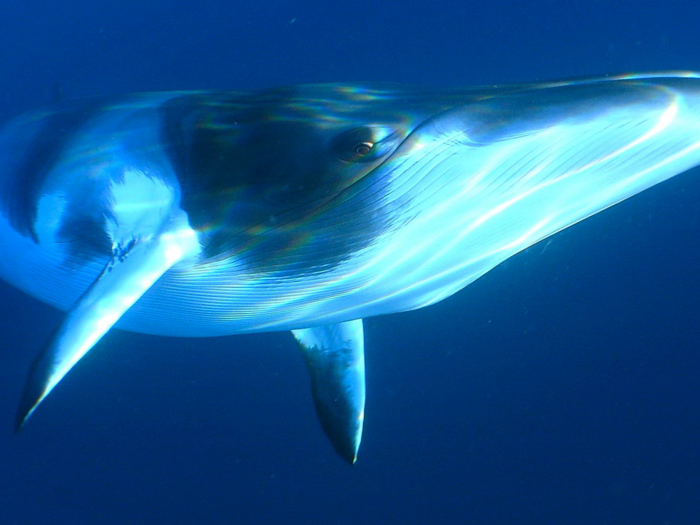
Sources: AAAS, PLoS Biology, PLoS ONE, Wired
Scientists also consider whales as "engineers" of ocean ecosystems. Yet humans have hunted up to 90% of whales, with unknown consequences on the "structure and function" of the seas.
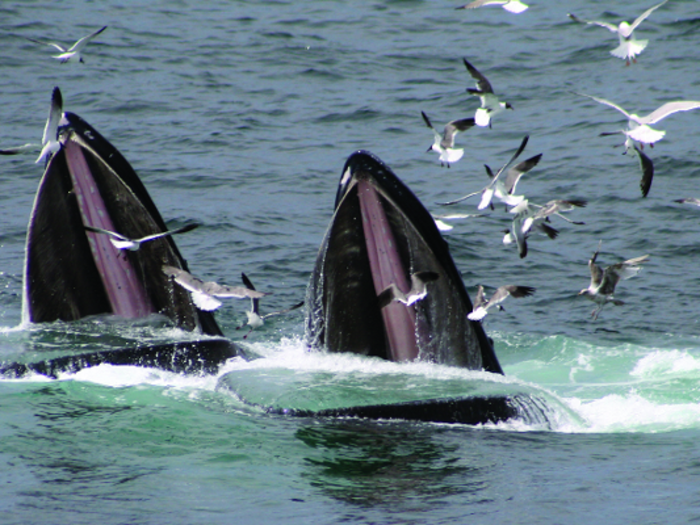
Japan defends its whale hunts, citing a provision in a 1986 global ban on commercial whaling. Officials say the provision allows it to kill whales for research.
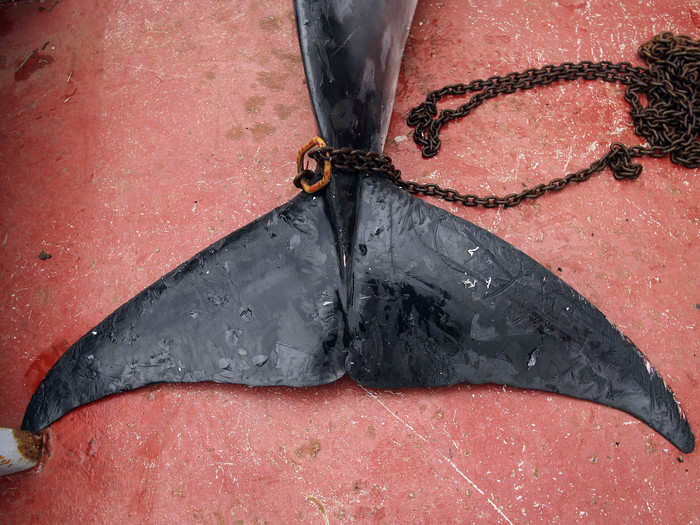
Source: The Guardian
But Australia has asked the United Nations' International Court of Justice (ICJ) for years to investigate Japan's "research" hunts.
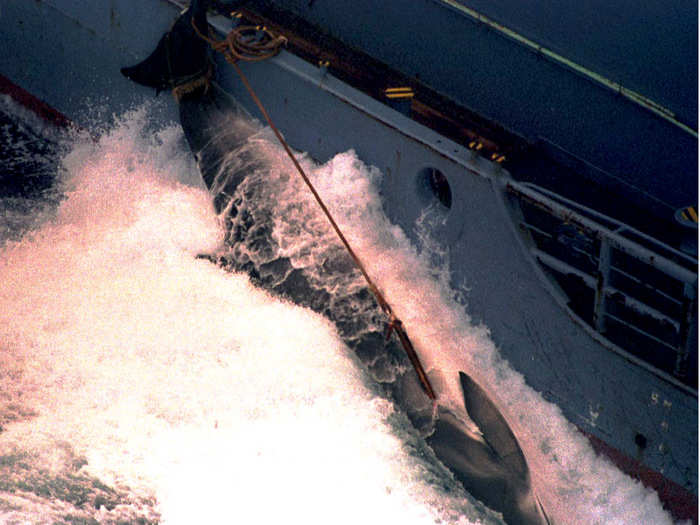
Sources: IAFW, The Guardian
In March 2014, the ICJ determined Japan was illegally hunting whales for commercial purposes under the guise of science.
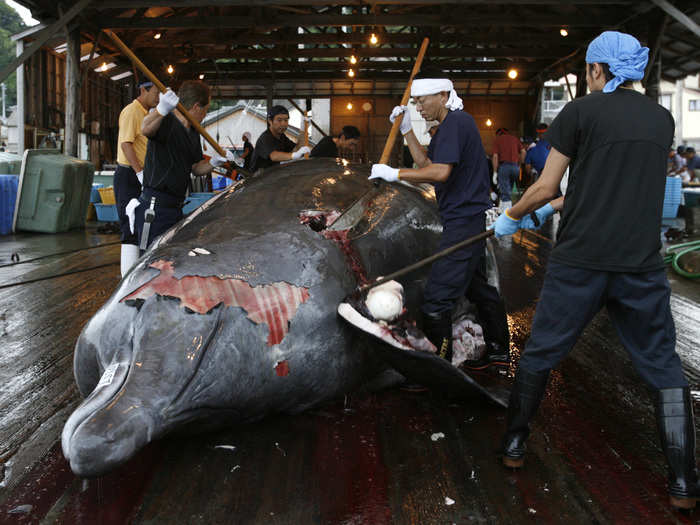
Sources: IAFW, The Guardian
The ICJ says Japan has killed 14,000 whales since the global ban went into effect in 1986 — far beyond the needs of science.
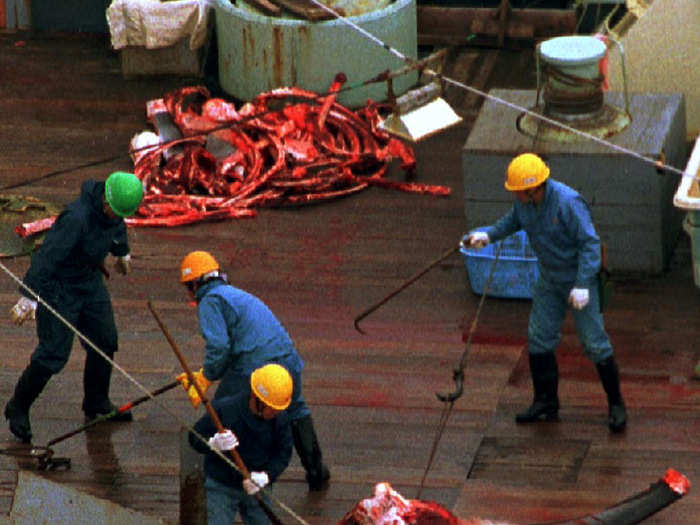
Sources: IAFW, The Guardian
In the 2013-2014 season alone, Japan killed 251 Minke whales.
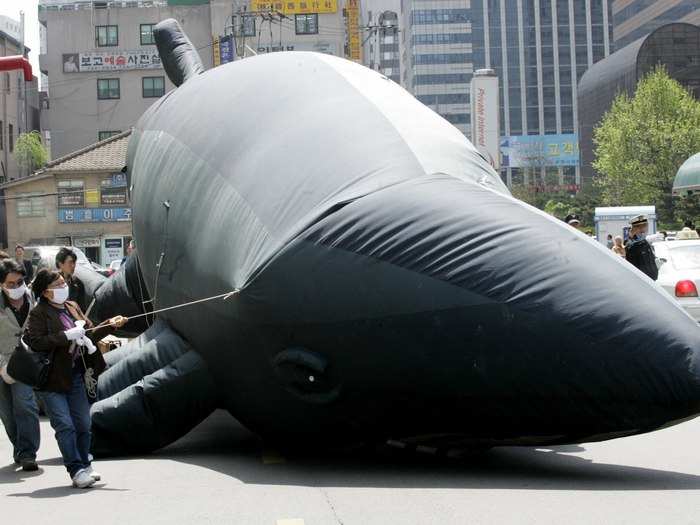
This season, Japan killed all 333 Minke whales in its self-assigned quota and harpooned quadruple the 50 sexually mature females it wanted.
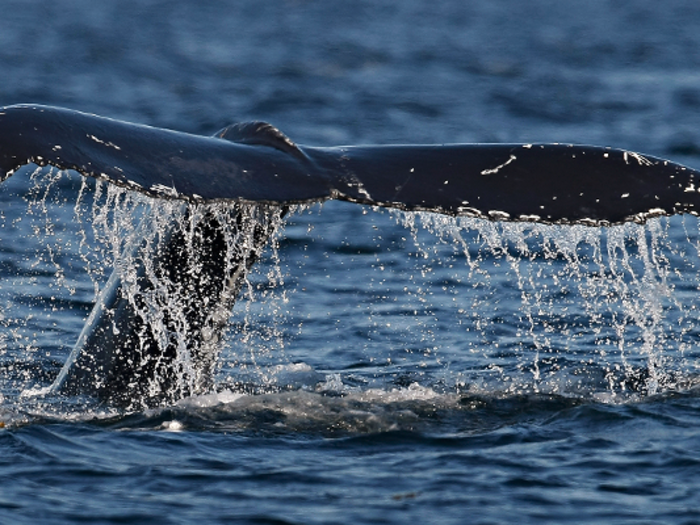
Source: International Whaling Commission, Reuters
A 110-page report released by Japan's government in November 2015 argues such "lethal sampling" of whales is necessary to conserve them.
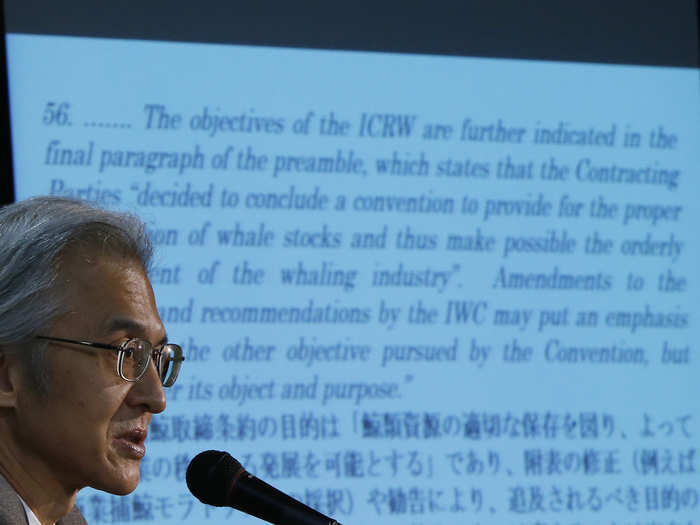
Source: International Whaling Commission
Meanwhile the Whale and Dolphin Conservation Society, a wildlife protection group, says Japan is merely exploiting a "loophole" to sell whale meat.
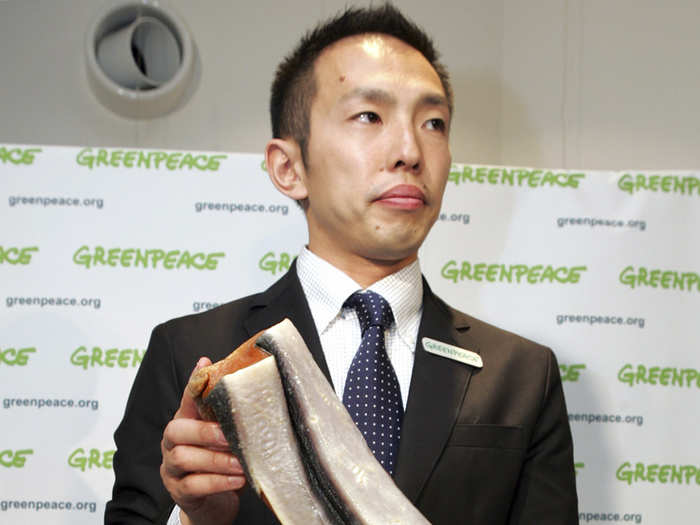
Whale researchers from around the world have also called the Japanese government's bluff, saying there is no scientific justification for hunting wild whales.
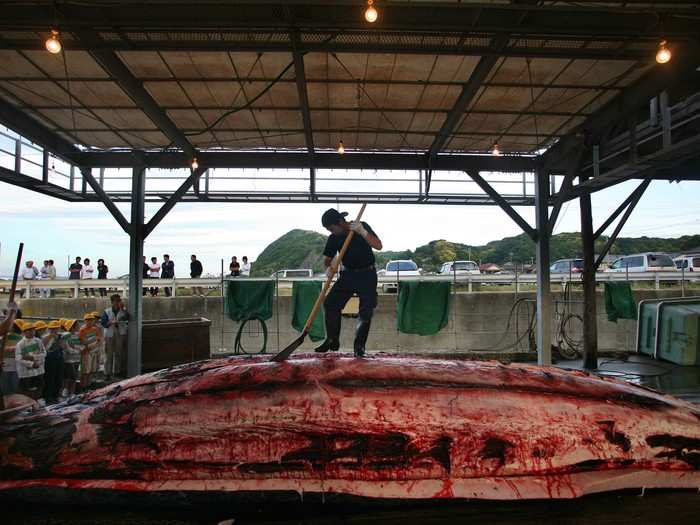
Source: Science Magazine
"We do not accept in any way, shape or form the concept of killing whales for so-called 'scientific research,'" Greg Hunt, Australia's minister for the environment, wrote in a statement.
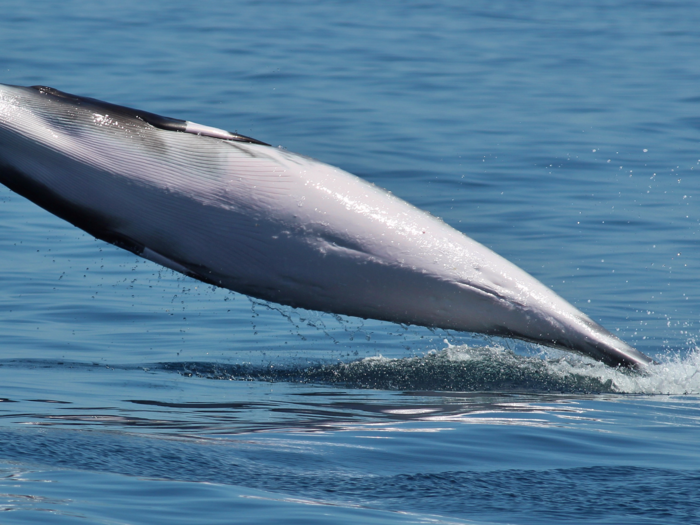
Source: GregHunt.com.au, Washington Post
Regardless, Japan's newest fleet departed in December 2015, in whaling vessels with "RESEARCH" painted on the sides.
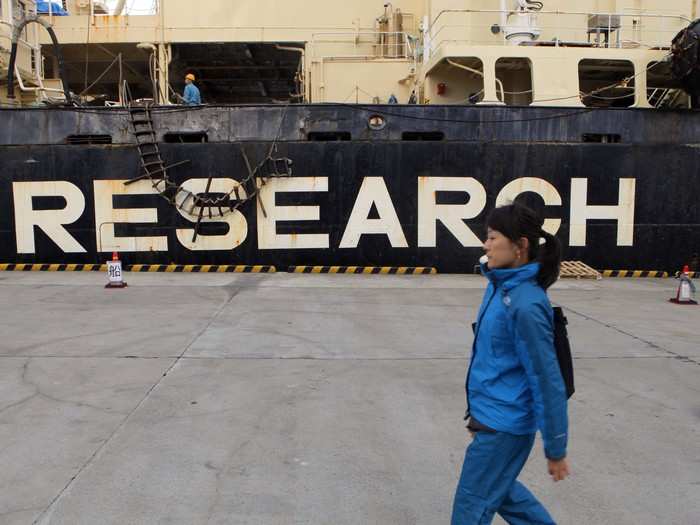
But the market demand and prices for whale meat have nosedived in recent years.

Whale meat used to cost about $13.60 a pound in 1994. In 2006 it cost about $7.45 a pound.
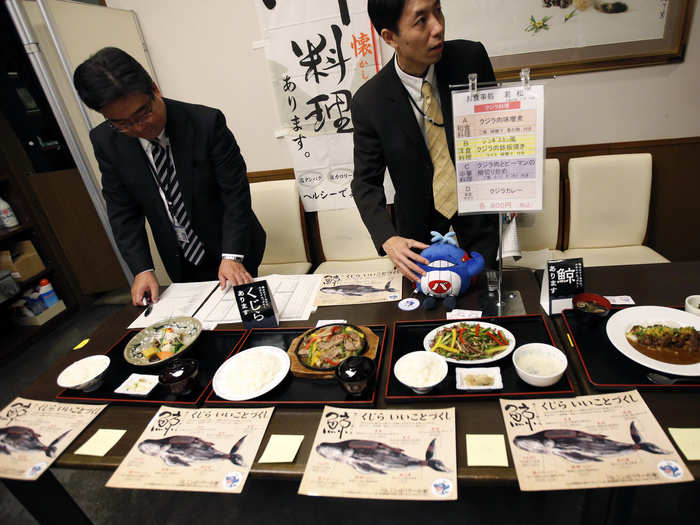
And while the average Japanese resident ate about 70 ounces of whale meat per year in 1967, residents ate less than 2 ounces per year in 2005.

Explanations for why Japanese officials keep subsidizing and protecting whale hunts when "most people don’t eat whale" run the gamut.
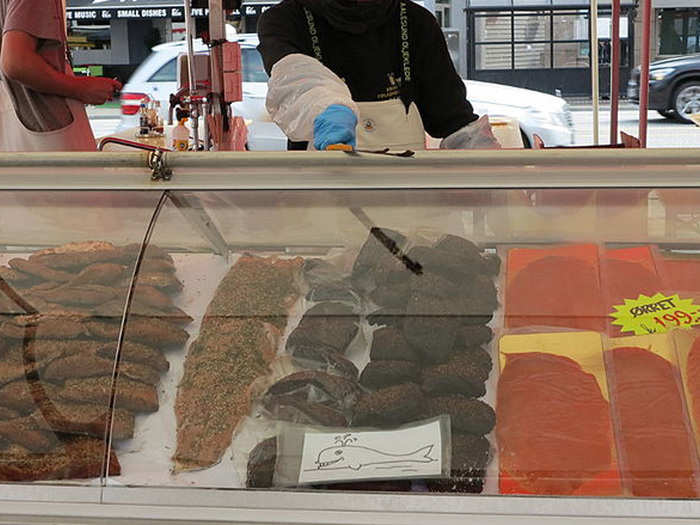
Source: The Diplomat
It may be for purposes of national identity, tradition, food security, defending fishing rights, cushy government-subsidized jobs — or, most likely, some complex mix of these and other reasons.
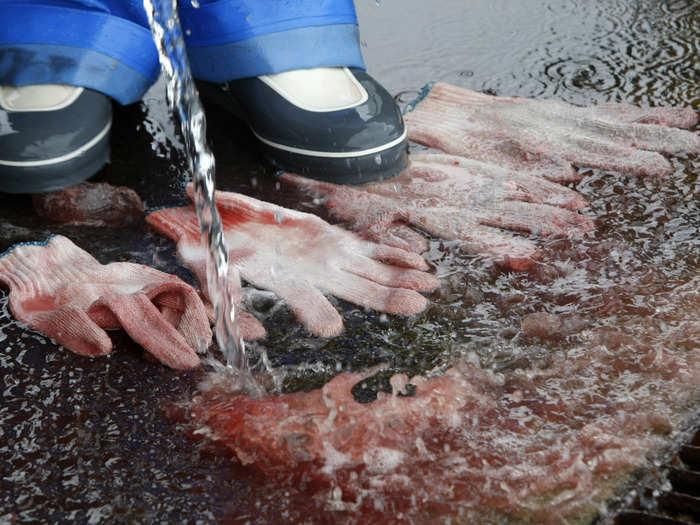
Source: The Diplomat
Whatever the case, Japan is determined to flout the international community's will and continue sponsoring whale hunts.
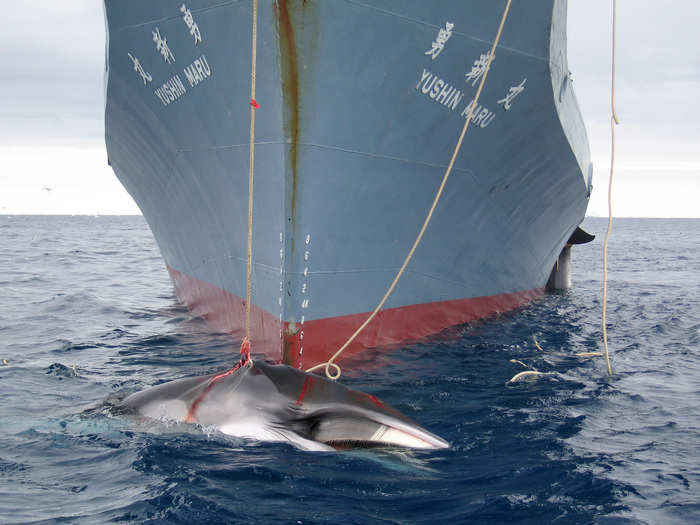
Popular Right Now
Popular Keywords
Advertisement
